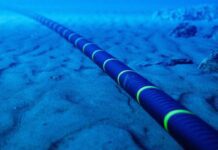A consortium led by the Institute of Minerals and Materials Technology (IMMT) is at the forefront of pioneering India’s first green steel-making initiative, backed by substantial support from the steel ministry. This groundbreaking venture represents a substantial departure from conventional steel production methods, which heavily rely on coking coal and result in significant carbon emissions.
The initiative centers around employing a 100% hydrogen-based Direct Reduction of Iron (DRI) process. In this innovative approach, hydrogen replaces fossil fuels in the reduction of iron ore to sponge iron (DRI), with water being the only byproduct. This sponge iron is then utilized in electric arc furnaces, where steel production occurs using electrodes.
The Ministry of Steel’s involvement, through a Rs 455 crore tender under the National Green Hydrogen Mission, underscores the government’s commitment to advancing sustainable steel-making practices in India. This initiative aims to significantly reduce carbon emissions associated with traditional steel production methods.
The proposed hydrogen-based DRI facility by the CSIR IMMT consortium is a pivotal step towards achieving environmentally sustainable steel production in the country. It is part of broader efforts to explore alternative methods like direct injection of hydrogen into blast furnaces and blending hydrogen with natural gas in DRI plants, gradually phasing out the use of fossil fuels.
This project not only aligns with global efforts towards carbon neutrality but also positions India as a leader in adopting green technologies for industrial processes. By fostering innovation and collaboration within the steel sector, the consortium aims to set new benchmarks for environmental stewardship and industrial sustainability in India and beyond.





